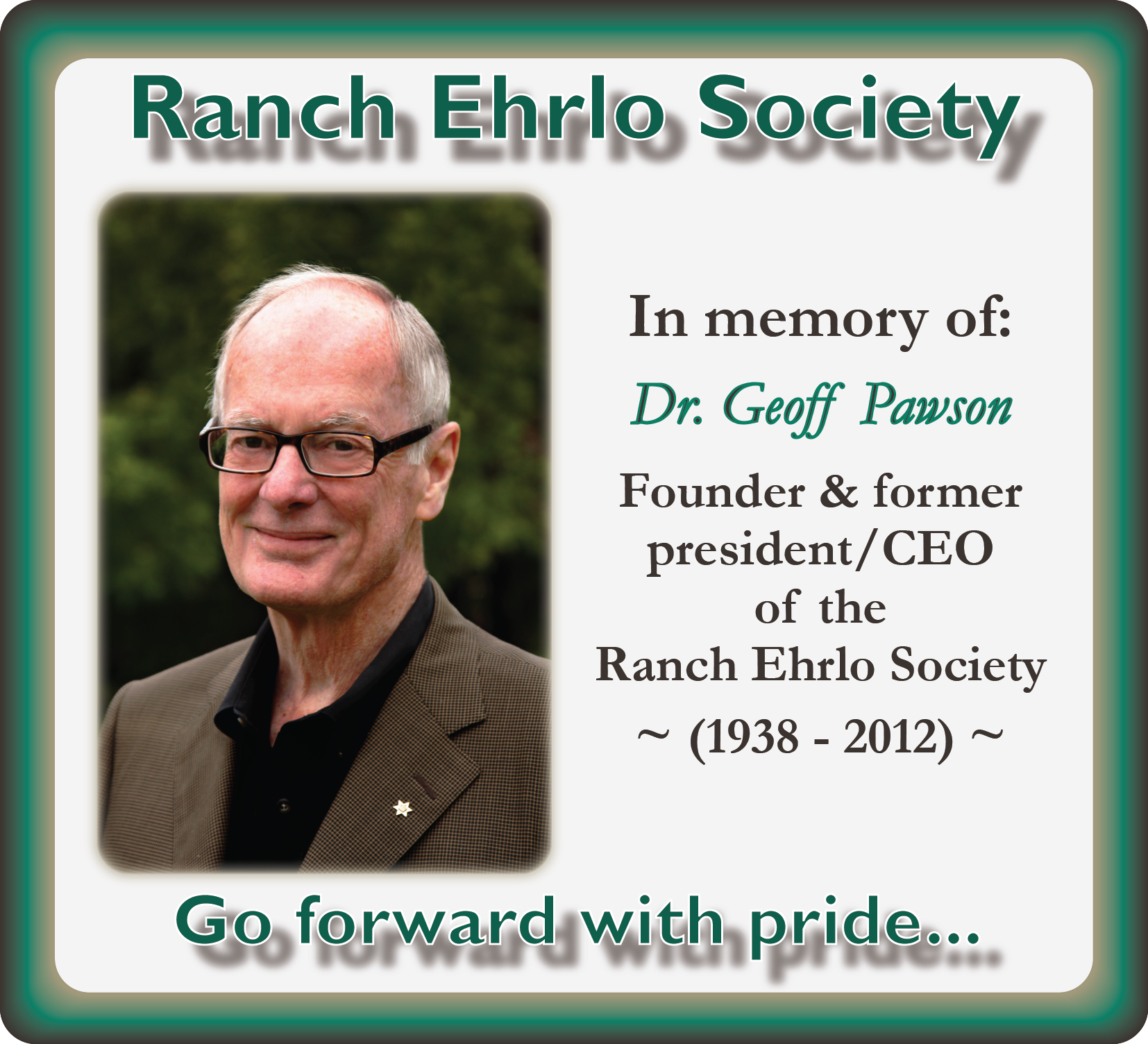Key philosophies Geoff used to build Ranch Ehrlo Society
In my last interaction with Dr. Geoff Pawson back in mid-December, I had interviewed him. The topic was key philosophies such as advocacy, families, and leadership. Geoff's interpretation of them, and how they have helped him to build Ranch Ehrlo. The end result was quotes or phrases that we can use from now on in communications, presentations, speeches, and so on. Geoff believed in children, youth, families, and communities. He believed everyone should be given the chance to flourish; all they need is the tools and support. I felt it prudent to share these quotes with you; essentially, part of Geoff's legacy has been captured in these seven philosophical quotes, as everyone now has access to them and can keep a part of Geoff with them. Below are the seven key philosophies Geoff identified and discussed in our interview.
Advocacy
Advocacy is a fundamental process that has the power to change lives through establishing new expectations, values, and personal interactions. Based on a philosophy of caring and respect, advocacy can be taught, demonstrated, and lived on a daily basis. Advocacy has the power to transform societal institutions and formal structures such as schools and work places, and it can impact small communities or larger geographical areas such as cities or nations.
Families
The family is the cornerstone upon which civil life is based and the forum by which children are taught social values and positive personal interactions. The family feeds and clothes the child, while guiding its moral development through infancy, toddlerhood, school, dating, and adulthood. Within each of these phases, the child is being prepared to assume the responsibilities of parenthood. As this occurs, the values of their parent’s home are often used as the template that initially guides new parents in the raising of their children. If the child does not experience a warm nurturing home environment, then he/she may be lacking the qualities necessary for positive citizenship, and it is necessary to teach these skills later in life, which is often a difficult process, but not impossible.
Volunteerism
Volunteerism provides opportunity for people to offer their time and talents to a range of programs committed to improving the well-being of people less fortunate than themselves and in so doing to strengthen communities. Much of the work in the charitable sector occurs primarily through the work of volunteers. At the Ranch, programs such as the Outdoor Hockey League could not be sustained without volunteers.
Leadership
Leadership at the Ranch is a process that involves an individual assuming authority over some aspect of their work and through competence and diligence having the ability to direct others toward an established goal. Leadership is not hierarchical, but is grounded throughout the organization and is evident at all levels. Basic to leadership is a clearly established personal value system that is founded on experience and knowledge, which allows the individual to have a vision for the future, to be committed to achieving established goals, and to have the competence and personal resilience to work towards desired outcomes when others reject his/ her work out of laziness, ignorance, or inability to conceptually understand the potential benefits. Leadership is not based on popularity and it can be a lonely state of being.
Education
Education usually applies to a formal process by which people acquire levels of achievement in a particular subject as defined by a school or other regulated institution. However, there are many forms of education, each different, and many are acquired through social interactions and experience with people generally. Such learning is often referred to as “wisdom.” Age, acquired knowledge, and the full utilization of potential learning opportunities resulting in improved competence are the foundations of wisdom. Life is a constant learning process that can lead to personal improvement of benefit to family, community, and country.
Faith
Faith is based on a belief system that recognizes the dignity and worth of human beings. From this value base, it becomes the responsibility of all people to work toward a world that is founded on decency and that directs action to provide help to those that are less fortunate. To trust in the inherent decency of human beings requires faith and a strong commitment to the values that underpin this belief system. Faith and commitment have the power to facilitate change and they offer understanding and continued acceptance when best laid plans fail.
Inspiration
Inspiration is a personally moving and an emotionally charged process that results when a person participates in, or learns about, an idea, happening, anecdote, or program that meshes with his/ her values. This process may be positive or negative depending on one’s personal belief system, but in this writing, the positive aspects of inspiration are accentuated. Inspirational happenings that involve care and respect can be observed and /or described, and they can reinforce, define, or demonstrate values that are strongly held. Inspirational speakers often use anecdotal material to make a point in their presentations, which may lead to creative action. Properly used, inspiration can be a major change agent.



